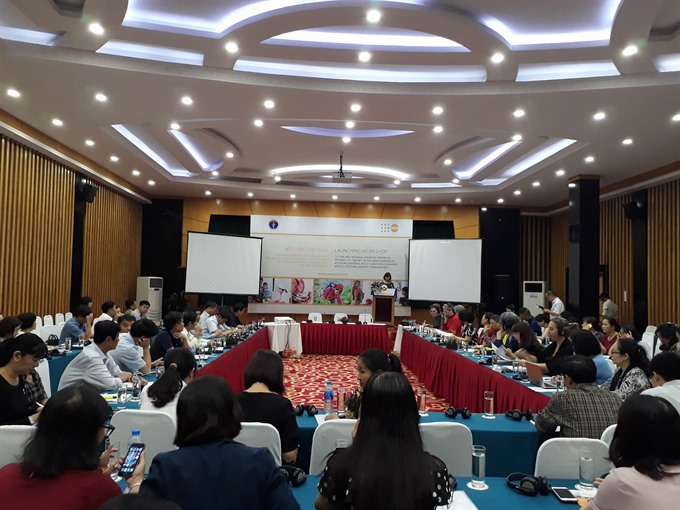 Society
Society

Accessing quality healthcare is a basic human right, and greater investment in midwifery is key to making this right a reality for all women everywhere.
 |
| Representatives attend the reports launching ceremony. — VNS Photo Thu Trang |
HÀ NỘI — Accessing quality healthcare is a basic human right, and greater investment in midwifery is key to making this right a reality for all women everywhere.
This is stated in the first-ever “National Midwifery Report of Việt Nam” and the report on “Exploring barriers to accessing maternal and family planning services in ethnic minority communities”, which were launched in Hà Nội on Tuesday by the Ministry of Health (MoH), with technical and financial support from the United Nations Population Fund (UNFP) in Việt Nam.
According to the reports, Việt Nam has made substantial progress in strengthening safe motherhood and health services for infants. However, there are still significant differences in maternal and child healthcare between those living in river deltas and those living in mountainous areas, with a higher maternal mortality ratio in remote and ethnic minority areas.
The overall modern contraceptive prevalence rate among ethnic minorities was 57 per cent, similar to the national average. However, there was wide variation between provinces and ethnic minority communities, with the rate being 75 per cent in the Central Highlands province of Kon Tum compared to 45 per cent in Gia Lai Province; 41-42 per cent for Ba Na and Gia Rai groups compared to over 70 per cent for Tày and Se Đăng groups.
Data reveals a significant shortage of skilled birth attendants in hard-to-reach regions and a significant difference in the competency of birth atendants in the lowlands and highlands. As many as 94 per cent of practising midwives are trained up to the secondary level, and only 0.8 per cent has a bachelor’s degree.
Nguyễn Đức Vinh, director of the Maternal and Child Health Department under MoH, said, “Midwifery and midwifery practice plays a crucial role in Việt Nam’s maternal and infant healthcare system.”
A skilled midwifery workforce with high competencies, motivated and supported by the healthcare system, is key to successfully reducing maternal and infant mortality and contributing to achieving the Sustainable Development Goals by 2030, he said.
Astrid Bant, UNFP representative in Việt Nam, said, “As the country continues to progress socially and economically, we must recognise that we cannot achieve sustainable development without promoting the health, especially reproductive health and rights, of women and girls throughout their life.”
She said UNFP in Việt Nam was fully committed to supporting the government and people to ensure that universal access to healthcare, including sexual and reproductive health, would become a reality for all. — VNS




